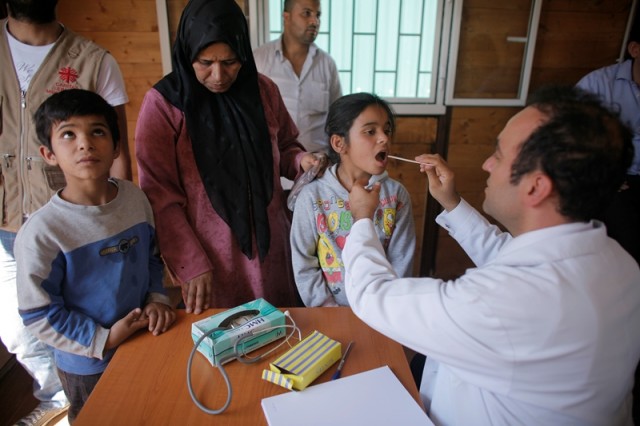Written by Stefan van der Berg (Ministry Leader dia-LOGOS)
Good health is an essential requirement for refugees to be able to rebuild their lives. Yet years or decades of forced displacement can take a significant toll on an individual’s health and well-being. Many refugees face challenges accessing affordable and essential health services due to factors such as pre-existing conditions, the conditions of their displacement, and access to healthcare in their host country.
The devastating impact of the 7.8 earthquake on Syria's healthcare system.
The 7.8 magnitude earthquake that occurred on February 6, 2021, in Southeastern Turkey near the Syrian border has exponentially worsened the already dire Syrian healthcare system, reducing its ability to respond to emergencies. Due to the protracted nature of the conflict, the health needs of displaced Syrians have become increasingly complex.
In Lebanon, which hosts 1.5 million Syrian refugees, the healthcare system is also severely strained due to the influx of refugees settling in underserved rural and peri-urban areas with suboptimal local capacity.
What are the main health needs of refugees?
Before displacement, many refugees live in countries experiencing humanitarian crises. During the journey out of their country, refugees may face harsh or dangerous conditions that have severe consequences for their physical and psychological wellbeing. Arriving in their new host country, refugees often do not have access to affordable health services. They may not be able to visit health providers, get medicines and medical supplies, laboratory tests, and other life-sustaining health services due to distance, safety, language, policy, or financial barriers. Treatment for ongoing conditions, including non-communicable diseases and malnutrition, is often interrupted. Refugees may have to live with serious injuries, like broken bones, without medical help.
Based on data from UNHCR's Integrated Refugee Health Information System, malaria, upper respiratory tract infections, and lower respiratory tract infections are the three top causes of morbidity among refugees. In refugee children under five, neonatal deaths, malaria, and lower respiratory tract infections are the top three causes of death.
How does dia-LOGOS help improve the health and wellbeing of refugees?
At dia-LOGOS, as part of PROJECT HOPE, we strive to improve the quality of life for refugees through access to medical care and priority health services. We take an integrated approach to supporting all facets of a refugee's wellbeing by not only providing necessary aid but also essential medications and practical support services.
After a long day of attending to patients, a volunteer doctor shared the following: "We had an overwhelming encounter with over a hundred patients today, and some cases were so critical that death felt inevitable. It left us disheartened. However, during our debriefing tonight, we recalled that we are not God but mere vessels of His compassion. If we can redirect even one individual's downward spiral of despair towards an upward spiral of hope, then we have accomplished our objective."
To learn more about Project Hope


